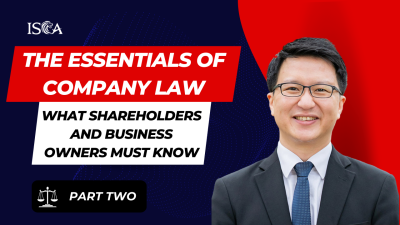Synopsis:
Sometimes, the harm is personal — a shareholder suffers directly at the hands of the controlling majority. Whether it’s exclusion from decision-making, unfair treatment, or oppressive tactics, the law offers powerful remedies.
In Part 2, we shift focus to personal wrongs and the statutory protections available under s 216 of the Companies Act, often referred to (though somewhat misleadingly) as the “oppression remedy.” We’ll explore real-world examples of oppressive conduct, the wide range of court powers to put things right, and when the nuclear option of winding up on the just and equitable ground might be appropriate.
By the end of this module, you will:
Identify conduct that may amount to oppression under s 216 CA.
Understand who can bring an oppression claim and the basis for doing so.
Examine court-ordered remedies under s 216(2) and their practical impact.
Appreciate the overlap and distinctions between oppression actions and derivative actions.
Recognise when winding up may be the only viable solution.
The Essentials of Company Law - What Shareholders and Business Owners Must Know (Part 1) will uncover the critical distinction between corporate wrongs (wrongs done to the company) and shareholder wrongs.
Intended For:
Competency Mapping:


